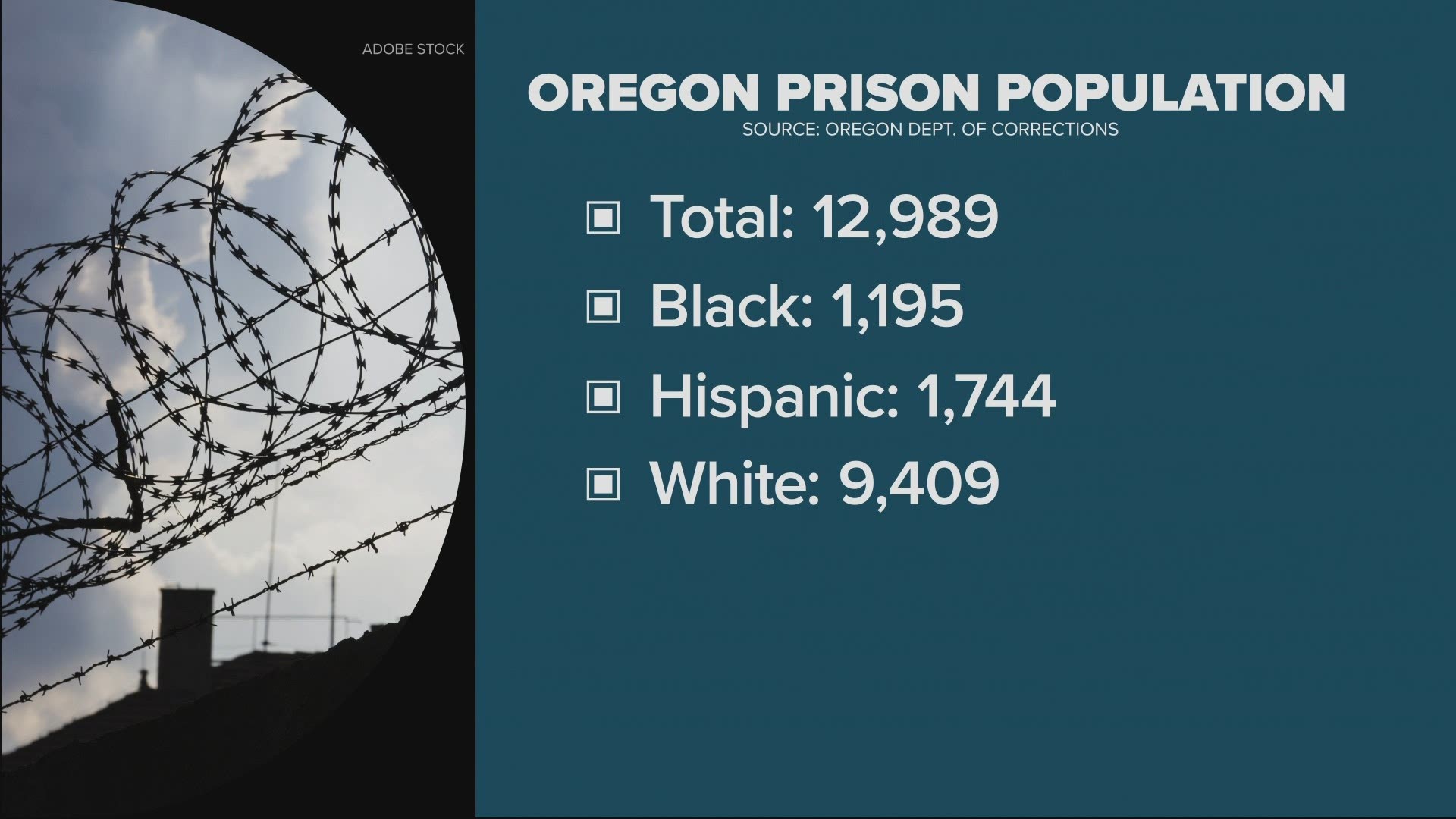PORTLAND, Ore. — There is a new bill, Senate Bill 571, that has been introduced in Salem that would allow all inmates the right to vote from behind bars.
Multnomah County District Attorney Mike Schmitt supports it and called it a no-brainer – saying that our current policy doesn't deter crimes and was born out of racism.
"When we sentence people in a courtroom after a crime, what you'll hear a judge talk about is how much time they're going to spend in prison,” Schmitt said. “I've never heard anyone talk about ‘well, you're going to lose your right to vote.' It's not a deterrent to future crime, and it's not really even the punishment, the punishment is your loss of freedom. So why are we doing this collateral consequence?"
If it becomes law, Oregon would be among the first states in the country to allow inmates to vote.
Currently, there are four approaches to handling voter rights while people are incarcerated.
Right now, in Oregon felons can’t vote while they are behind bars but as soon as they are released, they can vote again.
In other states, you must complete your probation or parole and pay off your fines and penalties before you can vote again.
Most states use one of the above approaches. But in about a dozen states, some felons never get to vote again once they're incarcerated. And in two states, Vermont and Maine, every prisoner gets a vote, even convicted murders.
So, Oregon is embarking on some pretty progressive policy here and that caught the eye of musician and activist John Legend.
He tweeted: “I believe everyone affected by the decisions of our democracy deserves to have a say in it. They shouldn't be silenced. Oregonians contact your legislator to help restore the voting rights of incarcerated individuals in OR!”
The word “restore” there is key because prisoners used to be able to vote in Oregon. The history of voting in our country is complicated and fluid.
Voting isn't some well-defined, assumed right that you can find in our founding documents. In fact, the only people who have always had the right to vote have been rich white men – or more specifically, a white man who owned land.
Lawmakers have been tinkering with voting since the beginning and often try to make it harder or easier for people to vote. The Supreme Court has made it pretty clear that it's up to the states to work out the details.
As for the changes to prisoner voting rights, those date back to right after the United States abolished slavery.
“I think there was a lot of fear, of course, that newly freed slaves would vote,” said Laura Appleman, Willamette Law professor. “In fact, when you look at reconstruction in the South, that's exactly what happened that. Slaves voted and they elected other legislators who are African-American and pretty much nationwide North and South, we said, ‘Oh, no.’”
Nationally, most people, on the left and right, support the way it’s currently done.
In the 2020 democratic primaries, all the candidates from the left agreed that prisoners should not vote except for Bernie Sanders, who is the senator from Vermont – a state where prisoners vote.
In Vermont, just like in Oregon, most of the people incarcerated are white.
In November of last year, Oregon had 12,989 prisoners and 9,409 of them were white. 1,195 of them were Black. 1,744 of them were Hispanic. The rest were Native American, Asian or Pacific Islander.
While the voting law may have been a way to keep black people from voting – in Oregon – it's stopping way more white people from voting.
Nicole Lewis, who writes for the Marshall Project, which is a group of journalists based in New York City who focus on the criminal justice system, says when we talk about this kind of reform it’s an equity issue.
“When I think about why this issue is so important. It's not just a fundamental question of fairness, or should we be re-accounting for this racist history,” Lewis said. “It's a question of, if we take all these millions of people away from their home communities, we incarcerate them, and we do not allow them to vote. It means that elected officials also never have to really take seriously the issues that matter the most to these people.”
One of the biggest arguments against the bill is that prisoners broke the law and often hurt innocent people. DA Mike Schmitt argues that giving prisoners the right to vote can help in their rehabilitation process – but that's not the only reason people get locked up. It's punishment and also a retribution for the victims.
“I think people who are opposed to the bill have argued that once you have committed a crime, you have basically lost your right to participate in the society,” Appleman said. “One of the punishments that we impose for committing a crime against the community is to say, ‘Well until you have been fully punished for your crime, we're taking away various things, often your freedom, your liberty, your money, but also your right to vote.'"

